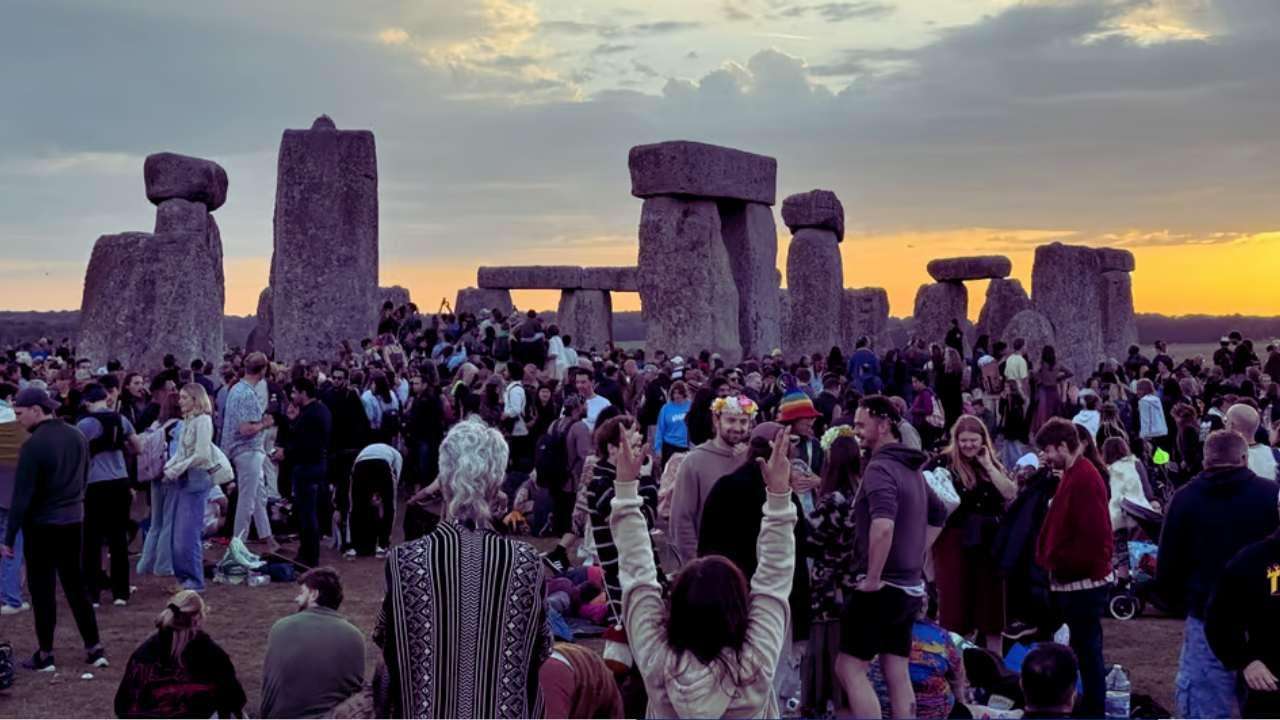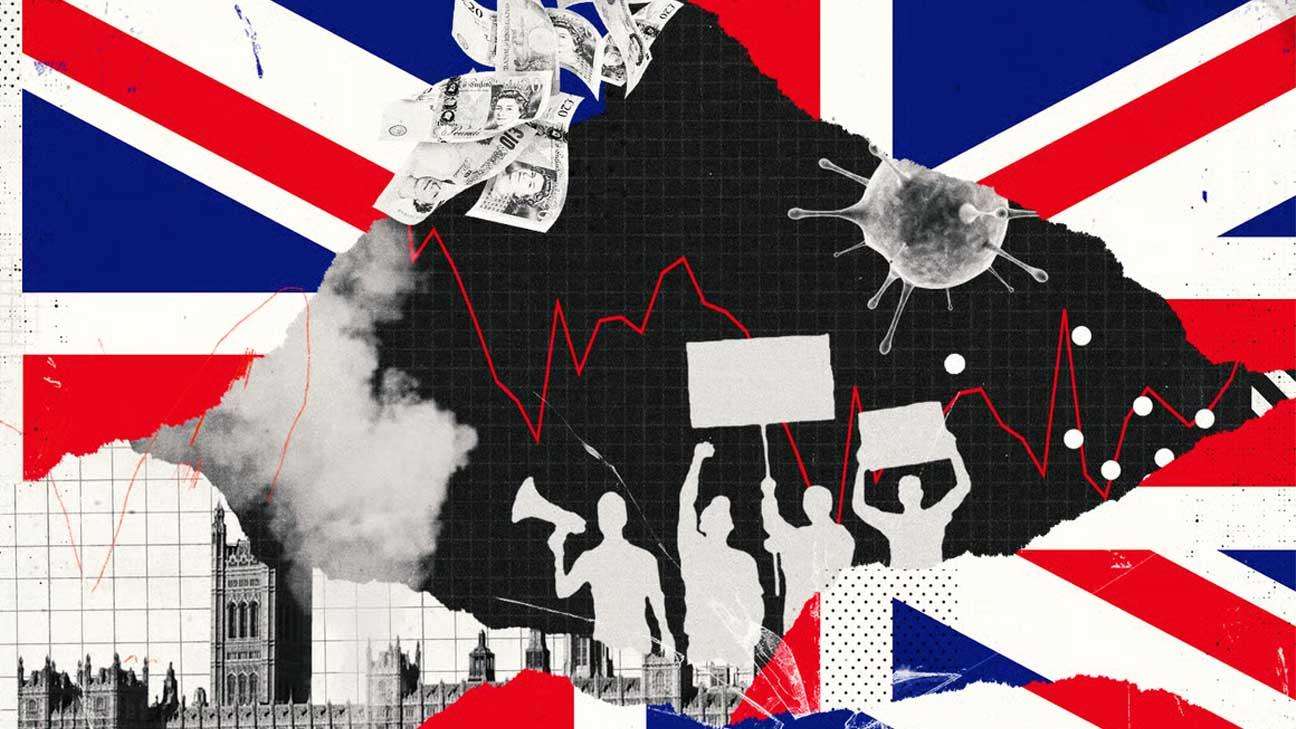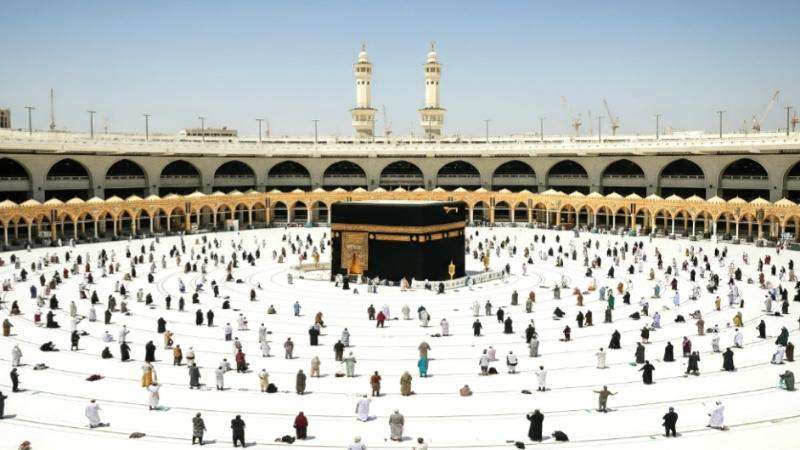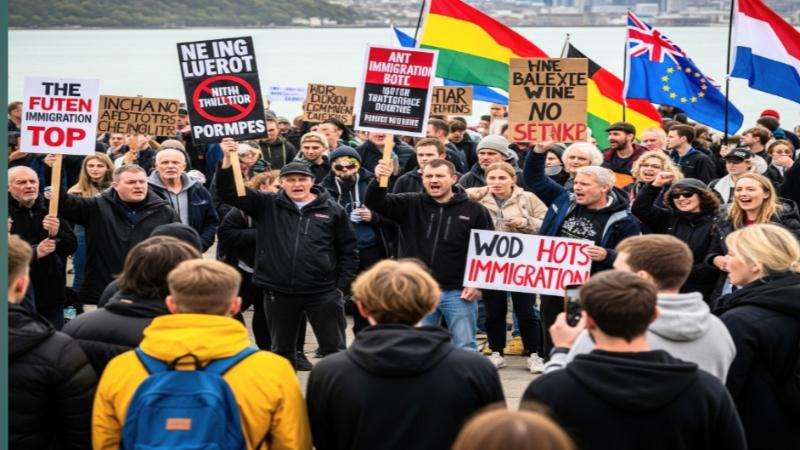The city of Plymouth once again became a focal point for public dissent today, as "anti-government" and anti-immigration protests unfolded in the city centre. The demonstrations, which saw crowds chanting "stop the boats," were met by a strong counter-protest, underscoring the deep divisions within the UK regarding immigration and broader government policies, Daily Dazzling Dawn understands.
The main protest, described as an "anti-government" march, drew participants who vocalized strong anti-immigration sentiments, with the repeated cry of "stop the boats" echoing through the streets. This phrase has become a common rallying cry for those advocating for stricter border controls and reduced levels of irregular migration, particularly concerning small boat crossings in the English Channel. The event was notably not officially backed by any union or work-related agency, suggesting a grassroots or ideologically driven mobilization.
In response, a spirited counter-demonstration took place simultaneously, with protesters waving Palestinian flags and displaying placards that read "Oppose Tommy Robinson." This indicates a clear opposition to far-right ideologies and a solidarity with immigrant and minority communities, highlighting the complex interplay of social and political issues at play. Police presence was visible to manage potential clashes and maintain public order.
Plymouth's Historical Ties to Migration:
Plymouth, a historic port city, has a long and multifaceted relationship with migration, a history that provides important context for the current debates. For centuries, Plymouth has been a significant point of departure and arrival for people seeking new lives or fleeing difficult circumstances.
Perhaps most famously, Plymouth is the departure point of the Mayflower in 1620, carrying English Separatists, now known as the Pilgrim Fathers, to the New World. While often romanticized, this was an act of migration driven by a desire for religious freedom and the pursuit of new opportunities.
Throughout the 18th and 19th centuries, Plymouth served as a major emigration hub. It was home to the only government emigration depot in the country at one point, facilitating the departure of hundreds of thousands of people seeking new futures in Australia, New Zealand, Canada, and South Africa. This mass emigration was often driven by economic hardship, the promise of land, or escaping personal crises at home. The city also saw significant migration from other parts of the British Isles, with coastal steamer routes playing a key role in connecting Plymouth to other ports.
More recently, Plymouth, like many UK cities, has seen inward migration from various parts of the world, contributing to its diverse population and cultural landscape. This ongoing dynamic of people moving to and from the city shapes its social fabric and contributes to the contemporary discussions around immigration.
Recent UK Immigration Policy Updates:
The protests in Plymouth occur amidst a period of significant changes and proposed reforms to the UK's immigration system. The government published a white paper in May 2025, titled "Restoring control over the immigration system," outlining its proposals with the stated aim of lowering net migration and improving community cohesion.
Key proposals within this white paper include:
Higher Skill Thresholds: The minimum skill level for the Skilled Worker visa route is set to rise from RQF Level 3 (A-level equivalent) to RQF Level 6 (graduate level), aiming to prioritize high-skilled roles and reduce reliance on lower-skilled migration.
Closure of Overseas Social Care Recruitment: The Health and Care Worker Visa route will be closed to new applications from abroad for social care workers, with a focus on domestic recruitment or those already in the UK.
Extended Path to Settlement: The standard qualifying period for permanent residence (Indefinite Leave to Remain) is proposed to increase from five to ten years for most visa categories, with some exceptions for those demonstrating "Points-Based contributions to the UK economy and society."
Reduced Graduate Visa Duration: The Graduate visa route for international students, which allows them to stay and work in the UK after completing their studies, will be shortened from two years (or three for doctorates) to 18 months.
Stricter English Language Requirements: Higher standards for English language proficiency will be introduced across all immigration routes, including for adult dependants of visa holders, to promote integration.
Increased Sponsor Costs: Fees for sponsor licences and Certificates of Sponsorship will increase, and employers will be prohibited from passing these costs onto their sponsored workers.
These proposed changes reflect a governmental push towards a more controlled and selective immigration system, with an emphasis on skilled migration and integration. However, they also raise concerns among businesses about potential labor shortages and among advocacy groups regarding the impact on individuals and families seeking to live and work in the UK.
The renewed protests in Plymouth, echoing sentiments heard across the country, serve as a stark reminder of the ongoing national conversation surrounding immigration, its historical context, and the profound impact of evolving government policies on communities.
The Bangladeshi, Indian, Pakistani, and wider South Asian Muslim and BAME immigrant communities have long been an integral part of the UK's diverse society, contributing significantly to its cultural and economic life. Amidst this, recent anti-immigration protests across the UK have highlighted ongoing tensions and debates surrounding immigration policies and their perceived impact, creating a challenging environment for these established communities and new arrivals alike.








.svg)


